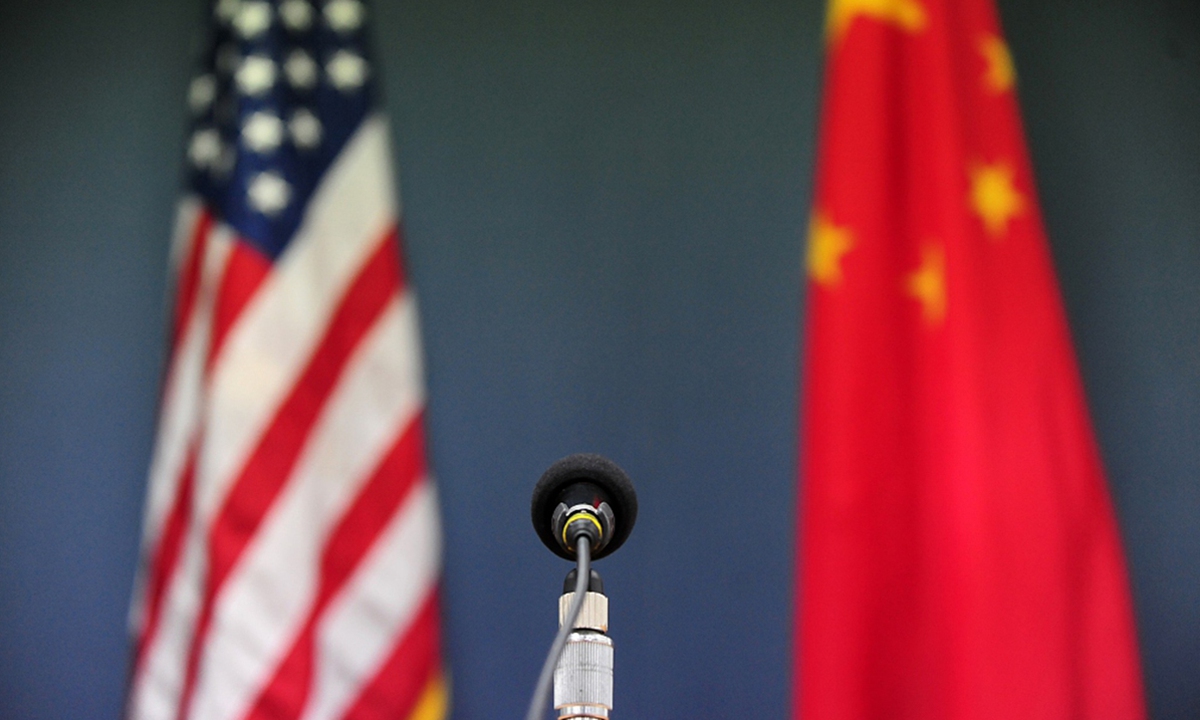
China US Photo: VCG
Chinese provinces and US states are seeking to boost subnational economic and trade cooperation, as bilateral relations between the two countries remain tense due to Washington's hardline policies toward Beijing.
Cooperative approaches by US state governments were welcomed at an online economic and trade cooperation forum on Saturday, which officials and experts described as a new highlight of bilateral economic and trade cooperation between China and the US, despite ongoing difficulties.
A forum for economic and trade cooperation between Chinese provinces and US states drew the participation of around 150 government officials and business representatives from several Chinese provinces, including North China's Shanxi and Central China's Hunan and US states, including California, New York and Iowa, according to the Chinese Ministry of Commerce (MOFCOM).
The officials and representatives held in-depth discussions regarding strengthening economic and trade communication at the provincial and state level and promoting mutually beneficial development, the MOFCOM said in a statement.
Wang Shouwen, Chinese vice minister of commerce, said at the forum that China will continue to open up its market and improve its business environment, which will bring more opportunities for foreign companies, including those from the US.
New York State Lieutenant Governor Kathy Hochul said via teleconference that as the state is building back stronger than ever after the COVID-19 pandemic, it is committed to promoting win-win economic development.
"We have had a long partnership [with China] and we look forward to continuing this relationship in the future," said Hochul.
Chicago Mayor Lori Lightfoot told the forum that as part of its COVID-19 economic recovery plan, the city plans to invest in areas such as manufacturing, life sciences, transportation and food processing, and it plans to seek cooperation with China over these sectors.
Such cooperative approach from US states stood in stark contrast to the US federal government's aggressive policies toward China, including clampdowns on Chinese businesses.
The Biden administration's strategy toward China is apparently a continuation of the Trump administration's approach, as it inherited Trump's tariffs and sanctions on Chinese technology companies, experts said.
Anti-China forces in the US want to push for the decoupling of trade and economic ties between China and the US, and do their best to create obstacles, Mei Xinyu, a research fellow at the Chinese Academy of International Trade and Economic Cooperation of China's Ministry of Commerce, told the Global Times on Sunday.
"But there are strong complementarities in bilateral trade, and they will never be able to eliminate this reality, no matter what the US federal government does," said Mei.
Mei said that economic development should be done on a case-by-case basis, and commercial issues should be resolved in a commercial way rather than political ways.
Despite the difficulties posed by the unilateral stance, the Chinese attitude toward open cooperation has not changed, experts noted.
Song Guoyou, deputy director of the Center for American Studies at Fudan University, told the Global Times on Sunday that there is great potential for rational labor division and distribution in the two countries' supply chains for win-win development.




